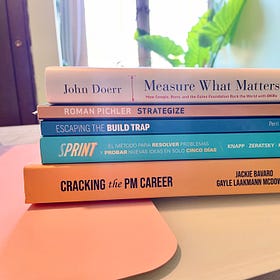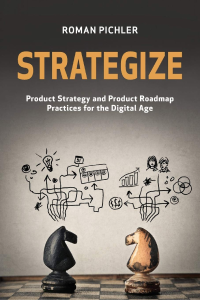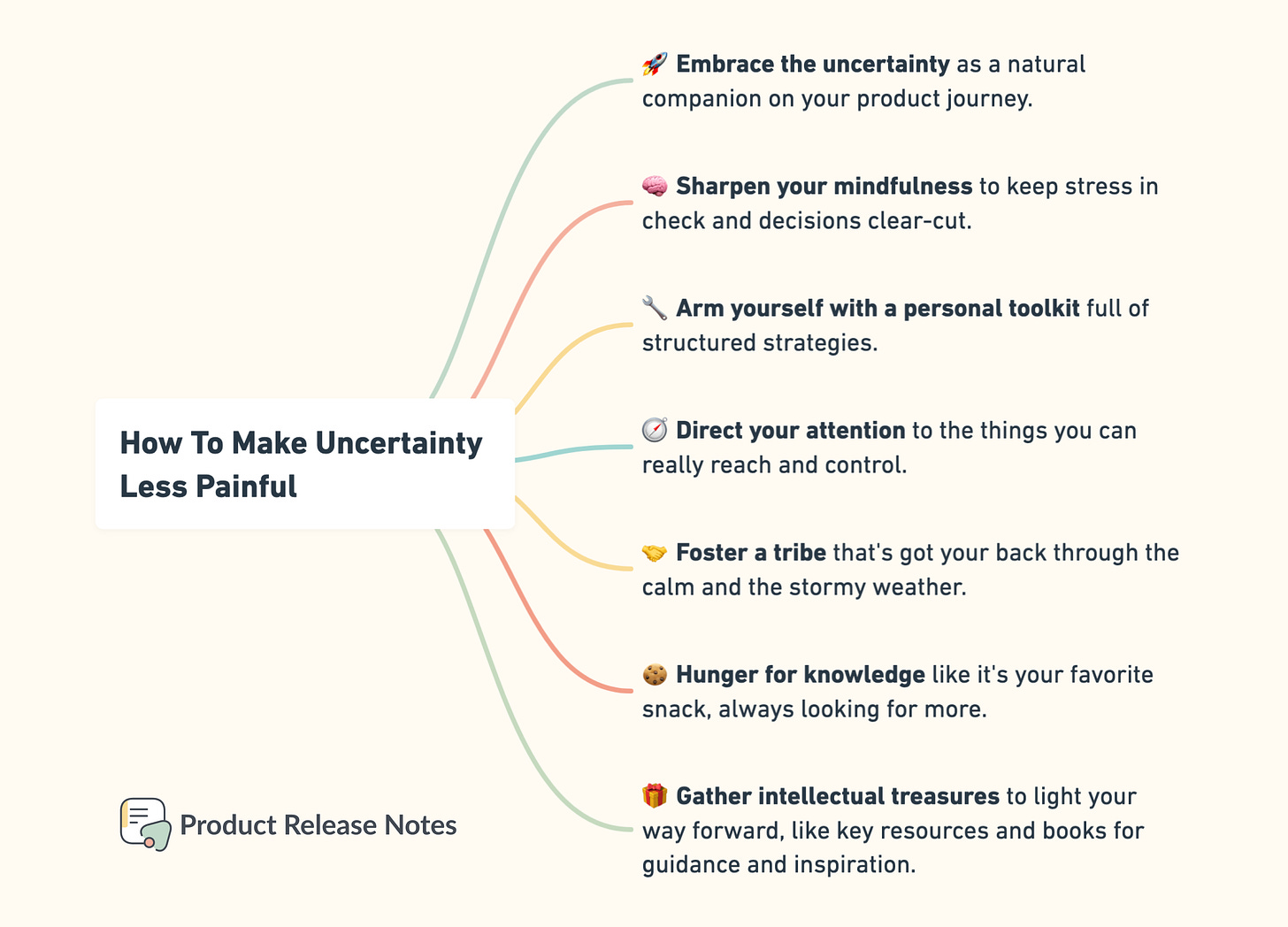How To Make Uncertainty Less Painful
How I used mindfulness and changed my mindset to overcome uncertainty.
When I started my career as a product manager, I felt the necessity to control everything. Control the developers output, how design should be and even the cadence to deliver. The result, of course, was that I was pushing myself to meet the targets and that also meant everyone else had to keep up with me.
What was happening to me was typical behavior when you are a new PM. Trying to control everything and everyone, because uncertainty is a really painful experience.
So I’ll walk you through some tips for overcoming this awful sensation. But first, let’s see why do we behave this way. 🤔
Why are we so afraid of uncertainty?
”Thinking, Fast and Slow" by Daniel Kahneman addresses several aspects related to how we perceive and handle uncertainty, aligning with the broader discussions on cognitive biases and decision-making processes. Kahneman, winner of the Nobel Prize in Economics for his work on psychological decision-making, analyzes how our mind is divided into two systems:
🐇 System 1: Fast, Automatic, Intuitive - Operates automatically and quickly, with little or no effort and no sense of voluntary control.
🐢 System 2: Slow, Effortful, Logical - Allocates attention to the effortful mental activities that demand it, including complex computations.
Also, one interesting concept mentioned in the book is the “Loss Aversion.” A significant part of handling uncertainty is the concept of loss aversion. Kahneman explains that people tend to prefer avoiding losses to acquiring equivalent gains: it’s better not to lose $5 than to find $5.
This can amplify the impact of uncertainty, making us even more risk-averse when we fear potential losses.
That being said, if we naturally tend to avoid losses and fear of the uncertain, then of course a career in product management will generate a lot of anxiety.
Product Management IS about uncertainty
Let's face it, as PM, your decisions will have a significant impact on the product, whether it succeeds or fails. Which means that choosing the wrong things to focus on can set the product back.
The difficulty is that we have to deal with constantly changing markets, customer preferences, technological advances and competition. It is impossible to predict with absolute certainty how a product will perform in the marketplace or what features will resonate with users.
💡For example: Making the wrong decision about which feature to develop can be costly, as better opportunities are missed and customers may be dissatisfied, the value of the product reduced and market share diminished. These mistakes can go beyond the balance sheet and threaten the stability of the company.
So how can you not get stressed about it? 😰
Embracing this uncertainty and understanding that it is a natural part of the job can help alleviate some of the pressure to control everything.
How I personally overcome uncertainty
The following advice from now on will be based on my experience. Because it is easy to say “do not fear!”, but actually learning how to do that is quite different.
When product management was new to me, the sensation of not knowing all scared me a lot. The more scared I was about certain thing, the more I tried to control it. That gave me a sensation of relief and convinced to myself that I was doing right.
At that time, my goal was to successfully complete what I was told to do. Then I realized that achieving dates was burdening the product team. I was not only passing my stress and anxiety altogether but I had a problem with being so demanding.
It's hard when no one tells you how to do this job from the beginning. So I made a commitment to learn and to be better.
Adopting a Zen mindset by practicing mindfulness
I’d like to make emphasis that I’m not a traditional Zen practitioner. But I’m very keen into some of these teachings that have become popular since the last decade.
Let’s see, Buddhism goal is to end suffering. What makes you suffer? In this case, uncertainty.
Zen is about be here now, living in the present, and accepting things as they are.
💡For example: As a product manager, be present at the meeting in deep connection with the people and environment around you. Listen and pay attention to each interaction and word pronounced. You have everything you need for this moment. Don't suffer for the past or for the future, for what you have or for what you won't have.
In theory that sounds really nice, but to put these into practice I make use of a mindfulness approach, like:
🧠 Awareness: Stay present to maintain clarity, avoid feeling overwhelmed and enhance observation to make informed decisions.
🌱 Simplicity: Focus on simplifying processes and concentrate on core features essential for user satisfaction, minimizing risk and optimizing resources.
💧 Adaptability: Use flexible planning to adapt to changes and navigate challenges, remaining like water in your strategy.
🧘♂️ Reflection: Engage in regular reflection to understand what works, and use meditation to manage stress and boost concentration. Introspection!
🌎 Holistic View: Consider all aspects of a problem to find well-rounded, innovative solutions that respect stakeholders needs.
💡For example: Instead of trying to control every aspect of the product development process, focus on what you can control. This may include:
Setting clear goals and priorities
Communicating effectively with your team (guiding them towards the common goal)
Being adaptable to change
Being open to feedback and learning from mistakes
Practicing some of these teachings at job have helped me to ease the anxiety of the unknown!
Don’t combat uncertainty, embrace it
Uncertainty is a natural part of being a product manager, but it doesn’t have to be a source of constant pain!
Rather than trying to fight against uncertainty and control every little detail, embrace uncertainty for more creative solutions and accept feedback constructively, fostering a productive environment without ego.
Actually, as difficult it may seem, embracing the unknown can actually lead to more innovative solutions and less stress.
How? 🤔
Well, you can free yourself from the burden of trying to control everything and instead focus on being adaptable, creative, and open to learning.
An occupied mind focused on the wrong things is a wasted opportunity of your time and talent.
Moreover, even if you are responsible for solving a problem, you don’t have to do it all yourself. You are accountable, yes, but you are not going to be the one designing, coding, implementing, etc.
That’s why is also important to create an environment where team members feel safe expressing their concerns and providing feedback and ideas. This is crucial for navigating uncertainty all together.
💡For example: Regular check-ins, open forums for sharing ideas and concerns, and collaborative decision-making processes help ensure that all team members are aligned and can contribute to overcoming challenges together.
If you communicate properly and open up the right space, you can even get more than one solution to a problem from a single brainstorming session.
See uncertainty as an opportunity to grow 🌱
It’s important to remember that no one has all the answers and that it’s okay not to know everything. By being open to new ideas and perspectives, you can navigate uncertainty with more ease.
By shifting your mindset to see uncertainty as an opportunity for growth and innovation rather than a threat, you can begin to embrace the unknown with more confidence.
Product Managers must cultivate a mindset of continuous learning and adaptability.
Viewing every challenge as an opportunity to learn and being willing to pivot or make changes based on what is learned enables product managers to navigate uncertainty more effectively.
💡For example: Staying informed about industry trends, customer behavior and new technologies that could affect the product or the market.
Also, I have a small PM group. Once a month we meet and go for dinner to talk about our experiences at work, sometimes you may hear complaints or funny anecdotes. But this little network is very useful when we share the same problems and hear how others succeeded. This is a source of inspiration and ideas as well.
So I highly recommend building a strong support network of colleagues, mentors, and friends that can help you feel more secure in your decisions and provide valuable insights when faced with uncertainty.
💡Extra Tip: Books to make you feel more confident
There are many books on product management and each has its own perspective on how to perform this function effectively. I wrote a comprehensive list which you can read in this post:
Boost Your Product Management Skills: 12 Books to Read Now
If you're looking to learn more about the Product Management world, you'll definitely need to start reading some books this year. Alongside all the things a Product Manager has to do, you’re maybe thinking, how will I find time to read all of this? There’s so many great apps like
But for the purposes of this post I can tell you that personally, I always consult these 3 books from time to time to overcome uncertainty:
1. Cracking the PM Career
The Skills, Frameworks and Practices to Become a Great Product Manager.
Jackie Bavaro and Gayle Laakmann
I always say, this book should be considered the bible for product managers. It is an essential guide for anyone wishing a successful career in product management.
It provides a comprehensive overview of the various facets of the product lifecycle, from product strategy to user research to product design, and gives invaluable advice on how to successfully transition from other disciplines and stand out in the job market.
👩🦰 More about the author (Jackie) ✍️ Cracking the PM Newsletter
👩 More about the author (Gayle)
2. Strategize
Product Strategy and Product Roadmap Practices for the Digital Age
Roman Pichler
Roman Pichler provides invaluable guidance to Product Managers and business strategists on how to create and manage effective product strategies and roadmaps in the face of uncertainty. It discusses various tools and practices that product managers can use to deal with complex product development scenarios.
He covers topics such as understanding customer segments and leveraging data to inform product decisions. He also provides advise on how to keep stakeholders in the loop.
3. Escaping the Build Trap
How Effective Product Management Creates Real Value
Melissa Perri
In her book, Melissa Perri outlines strategies to help companies move away from endless feature-building and instead focus on delivering customer value.
She suggests prioritizing impact over features, focusing on user feedback, and continuing to ship. With this approach, companies can escape the build trap and create great products that truly meet their customer needs.
These books not only discuss strategies to manage uncertainty but also provide frameworks for creating products that thrive in ever-changing markets. Reading these can equip you with the knowledge to lead your products and teams with confidence amidst unpredictability. 💪
Wrapping Up
There you have it, some tips on how to make uncertainty less painful in your role as a product manager. Remember that uncertainty is a natural part of the job, and embracing it can lead to more solutions and growth opportunities.
Keep these key takeaways in your back pocket:
🚀 Embrace the uncertainty as a natural companion on your product journey.
🧠 Sharpen your mindfulness to keep stress in check and decisions clear-cut.
🔧 Arm yourself with a personal toolkit full of structured strategies.
🧭 Direct your attention to the things you can really reach and control.
🤝 Foster a tribe that's got your back through the calm and the stormy weather.
🍪 Hunger for knowledge like it's your favorite snack, always looking for more.
🎁 Gather intellectual treasures to light your way forward, like key resources and books for guidance and inspiration.
So next time you're faced with uncertainty, try to see it as a chance to learn, grow, and innovate. Embrace the unknown and trust in your ability to navigate challenges effectively. Good luck on your journey! 🚀













Great book recommendations. Escaping the Build Trap is so good.